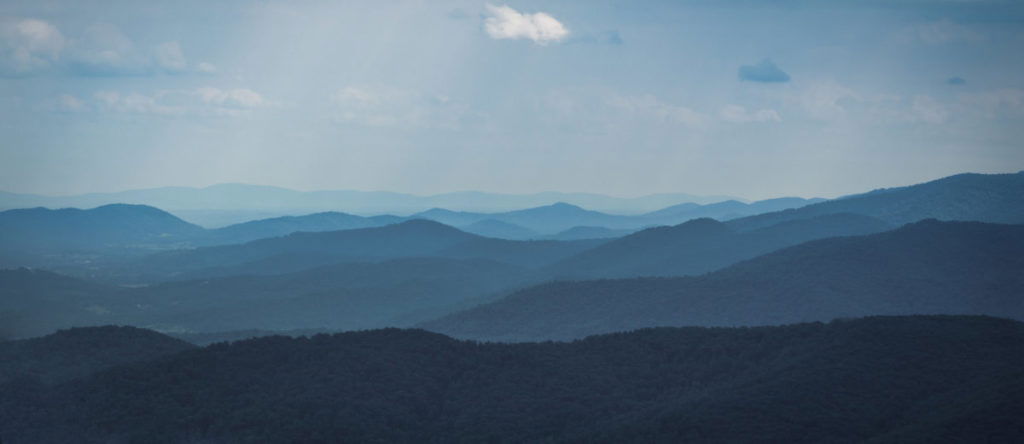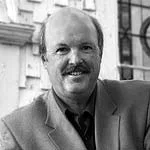‘The silence gathered and struck me. It bashed me broadside from nowhere, as if I’d been hit by a plank. It dropped from the heavens above me like yard goods; ten acres of fallen, invisible sky choked the field. . . . But the silent fields were the real world’
—Annie Dillard, “A Field of Silence”

I was born in a forest in the foothills of Virginia. My birth certificate notes a hospital as my place of birth, but we know how trivial that is. Birth for me was waiting in the trees.
Through the strange days of tweenhood, my after school ritual, especially in the fall of the year, was to shed the confounding social world of elementary education, put on my dad’s Korean War-era khaki military coat, and head for the sylvan world. In those days my forest was far from town and our new subdivision in the wilderness on Little Skyline Drive was still unfinished and sparsely populated.
I could slip into the trees or wander to the river and be unnoticed and entirely at ease. In those woods I imagined myself a soldier—and there were trenches there still left from the winter of 1863. I imagined myself a preacher and had a prominent rock from which to stand and deliver. When an intruder with a chain saw brought violence to the wood I lurked in silent judgment, imagining myself a guardian of the trees. In that forest I was an explorer, a rutting deer, a creature alive entire.
So, yes, I was born in the forest. It was there, in its silence that I heard the voice of my Beloved for the first time—the animal voice that has always been my end and companion.
At Wahat al-Salam, in a strange No-Man’s (No-One’s?) Land formed by an anomaly in the Green Line that marked the ceasefire lines after the 1948 War, there is a double domed building called the Pluralistic Spiritual Centre. Built for this unique community that is inhabited by Israeli-Jews and Palestinians and who represent spiritual traditions ranging from Islam to Judaism to Christianity to Buddhism, the Centre invites this diverse community to gather around silence. In a meeting hall denuded of every religious symbol, they wait in silence because, as Psalm 65:1 says, “to you even silence is praise.” And so in a land of injustice and strife, they wait—with silence their offering and silence the medium through which they expect the divine.
Silence can still devastate me, like Annie Dillard walking through the fields of a Pacific Northwest farm only to be assaulted by it. A pause in a conversation with someone I love, when the words have been spoken and the clock ticks and the air handler kicks in and we are together in silence. It is an intimation of eternity.
In the silence is the recognition of a truth—that the hunger that compels me is not for something I do not possess. It is within me and around me. The hunger is for the moments when I can sense it, savor it, abide in it. There is so much beauty amidst the horror. So much heart-breaking beauty. And it never ends and seldom speaks except in silence.
In the silence of no-one’s land.

Share this post with your friends.

